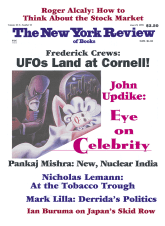Our love, deep and true, went on for forty years and I know that Pete, the man I loved and who loved me, would want me to write about our love. He would say: The time has come. That is what he would say if he were still around to lovingly advise and edit this work as he lovingly supervised all of my work. Many people, indeed everyone who had the good fortune to know him, admired and treasured Pete. They knew him as a brilliant, courteous, reserved gentleman, a famous, sacrificial laborer in the competitive publishing world. But they didn’t know him as I did, know him as the passionate, far from reserved, fun-loving man in my life. We were not husband and wife; that could not be because of a wife around for fifty years.
With us it happened suddenly, although looking back we could both see that it was always there. But all of a sudden, since there has to be a beginning, during a work session in his pristine office, Pete looked at me and said: Let’s take the A train. Of course we weren’t going to Harlem. We went off in a cab to the St. Regis Hotel for a long day and night that was meant to be.
With us and our love, every hurdle was surmountable except for the fifty-years-three-offspring business, which he could not forget except when he was with me. I found an apartment not so far away from the place of his previous commitment undertaken long before our love overwhelmed both of us. Pete had a separate phone line installed in his bedroom so that he could call me at midnight, when he awoke in the morning, whenever—and whenever was very, very frequent. The fact that our phone was in his bedroom, not off in a hall somewhere, gives you an idea of who wasn’t in his bedroom. I thought that a good solution, as I thought most of Pete’s solutions were good. That was just the sort of man he was, making the best of troublesome situations, trying not to hurt anyone more than he had to with his good solutions.
With the phone in the bedroom, I escaped the eternal cry of the mistress: Why didn’t he call, he might at least have done that! and so on. But I must make clear that I wasn’t a mistress. Whoever heard of a mistress for forty years? Forty years of love makes you a wife and that is what Pete called me. I am, after all, just reporting the facts; reporting Pete, with his beautiful sometimes sad eyes looking into mine, and saying, quote: You are my wife.
Of course I knew that. There is no need for information in a love like ours. You meld, you melt, you become one, as the ancient philosopher knew. And she knew, knew all about it. But what could she do? Write a book? She’s not a reporter.
Pete was strong, devoted to his work, truthful, and yet tormented. Sometimes he seemed to have the feeling that he was a double, like the characters in Dostoevsky, whom he loved along with Duke Ellington and me.
One time we were walking in Central Park, holding hands, enjoying the pleasures of life just like any other couple in love. And then I saw her struggling up the street with a real load of groceries from Grace’s Market. I was moved by the sight and tried to move Pete. Help her, I said. But he, brilliantly cryptic as ever, said: I am not here and I am not there.
This is our story. The great copy editor in the sky may wish to add his famous commas to my tribute. But, dear love of my life, here it is. Pete, comma, this book, comma, is for you, comma, and for, comma, our love.
—EFFIE TRAYLOR-PARKES
This Issue
June 25, 1998



